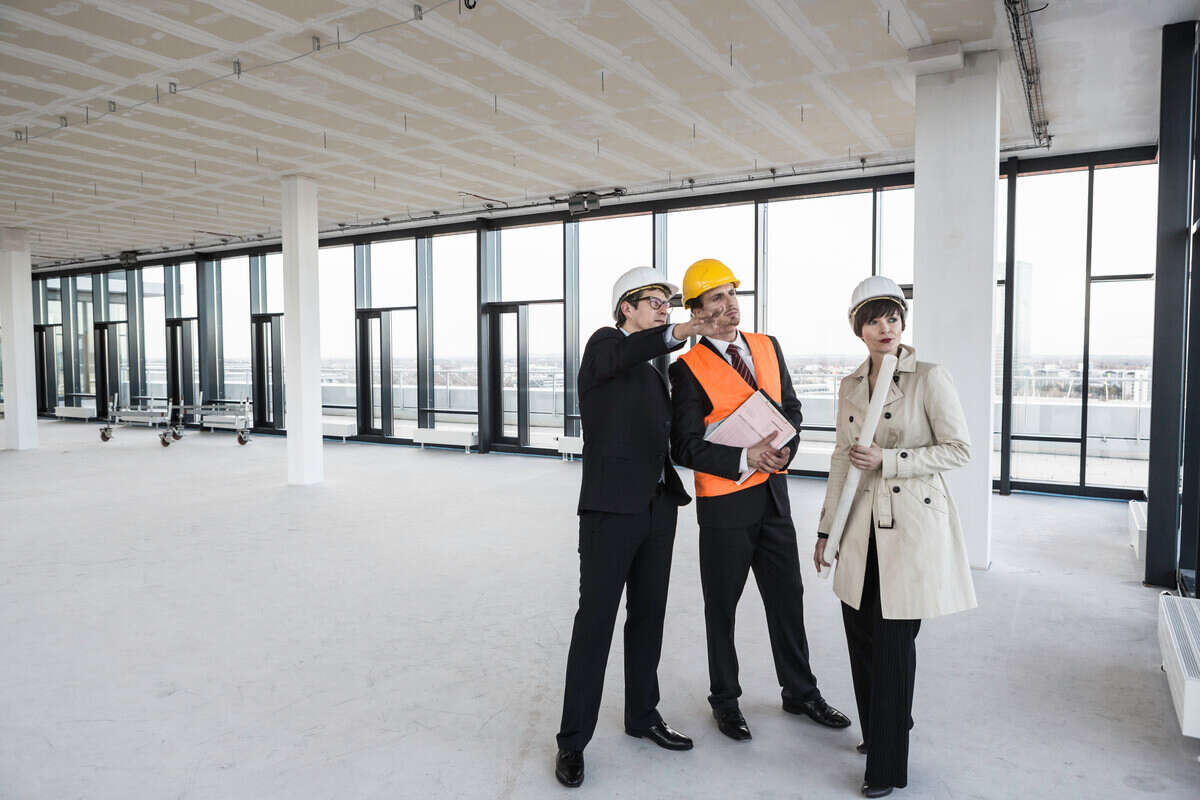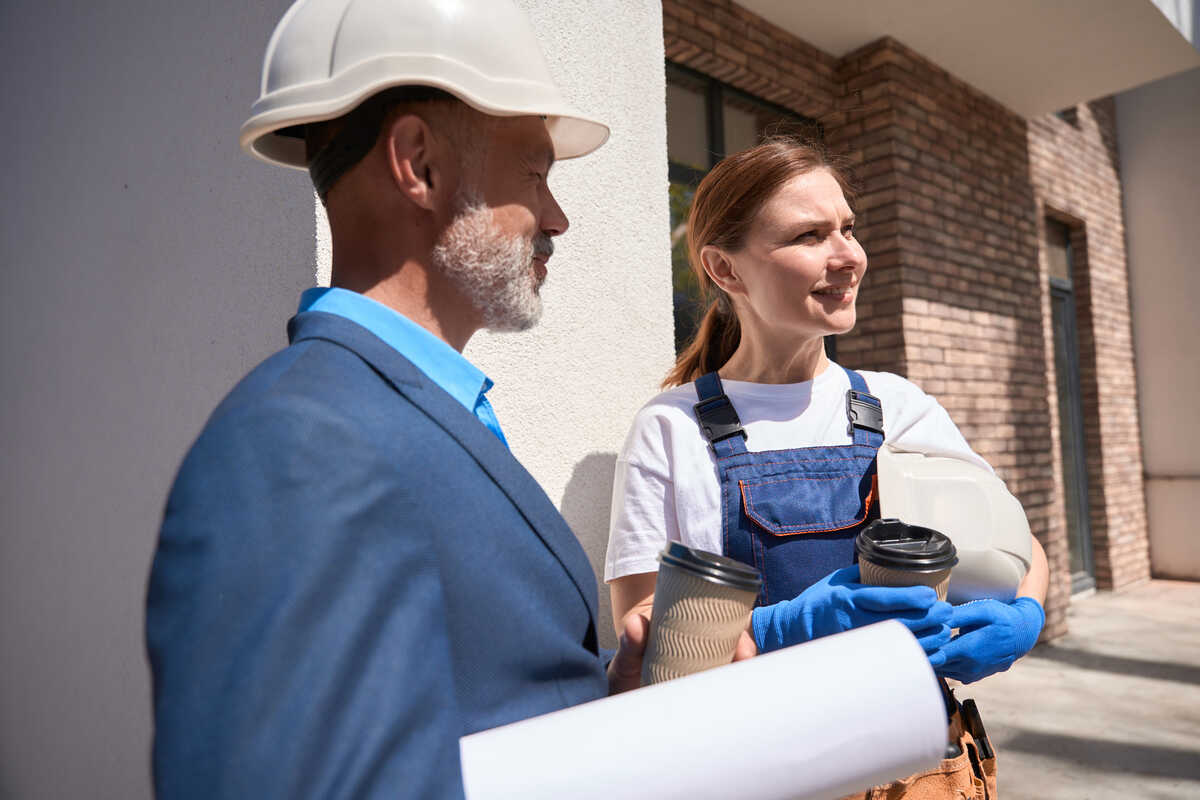Commercial Property Inspection 101: What You Need to Know
January 31st, 2024

Just as the famous adage 'don't judge a book by its cover' applies to people, it's equally applicable when you're considering a commercial property investment. Sure, the building may look impressive on the outside, but what about its inner workings and systems? Do you know if it's structurally sound or if it complies with all relevant building codes and regulations?
That's where the invaluable process of a commercial property inspection comes in. And there's more to it than merely identifying potential issues. Stick around to discover what you need to know about this critical step in your investment journey.
Understanding Commercial Property Inspections
While you might be familiar with residential property inspections, understanding commercial property inspections is a whole different ball game. Commercial inspections are more in-depth due to the nature and use of the buildings being inspected.
You're dealing with larger spaces, more complex systems, and higher safety standards. It's not just about checking the condition of the property but also evaluating its compliance with specific regulations.
You'll need to consider the property's structure, systems, and components. You're also looking at how well it can function as a commercial space. It's a task that requires a keen eye, deep understanding, and specialized knowledge.
Importance of Commercial Property Inspections

Investing in a commercial property without a thorough inspection is like navigating uncharted waters blindfolded. A property condition report reveals potential deficiencies and estimates repair costs, offering valuable insights into the asset's true value and return on investment. Inspections also contribute to making informed decisions about property expenses, rental income potential, and overall feasibility.
Key Differences: Commercial Vs Residential Inspections
While the goal of inspections—evaluating the physical condition of a property—remains consistent, the dynamics of commercial and residential inspections are markedly different. Understanding these differences is essential for anyone involved in the commercial real estate market.
Let's delve deeper into the key differences:
1. Property Complexity
Commercial properties, such as office buildings, manufacturing facilities, or sports complexes, tend to be more intricate than residential homes. The diversity of spaces within a commercial building, from kitchen areas to office spaces, requires a specialized knowledge base. Commercial inspectors must be well-versed in the nuances of these varied environments to provide a comprehensive assessment.
2. Critical Systems
Commercial properties house critical systems that are often more complex and expansive than those in residential properties. Mechanical systems, including heating, ventilation, and air conditioning (HVAC), are more complex and could require specialized attention. Safety systems, such as sprinklers, also demand meticulous inspection, as they play a vital role in safeguarding occupants and assets.
3. Specialized Knowledge
Unlike residential inspections, which benefit from a more generalized approach, commercial inspections necessitate specialized knowledge. Inspectors need to be familiar with the specific requirements of different commercial property types, whether it's understanding the unique needs of manufacturing facilities or the safety considerations in sports facilities.
4. Regulatory Compliance
Commercial properties are subject to a broader range of regulations and codes compared to residential properties. Ensuring compliance with these codes is a critical aspect of commercial inspections. A commercial inspector must possess a deep understanding of local building codes, zoning regulations, and other industry-specific guidelines.
5. Property Usage
The purpose and usage of a commercial property significantly impact the inspection process. For example, an office building may have different requirements than a shopping center or a multi-family dwelling. Inspectors must tailor their approach to align with the intended use of the property, considering factors such as foot traffic, safety features, and accessibility.
6. Risk Assessment
Commercial properties often involve a higher degree of risk compared to residential properties. Potential safety hazards, such as environmental issues or structural deficiencies, can have more significant consequences in a commercial setting. Inspectors must possess the insight to identify and assess these risks, providing valuable insights for investors and stakeholders.
The Inspection Process: Step by Step

Navigating the commercial property inspection process is a meticulous journey, demanding a systematic approach to unveil the intricacies of the property's physical condition. Each step in the process plays a crucial role in providing a comprehensive understanding of the asset.
Let's break down the commercial property inspection into key steps:
1. Preliminary Research and Documentation Gathering
Before the on-site inspection begins, thorough preliminary research is conducted. This involves gathering relevant documentation such as maintenance records, construction permits, and building plans. A comprehensive understanding of the property's history sets the stage for a more informed inspection.
2. Exterior Elements and Building Envelope Inspection
The inspection typically kicks off with a thorough examination of the property's exterior elements and building envelope. This includes assessing the condition of outer walls, roofs, windows, and doors. Identifying potential deficiencies in these areas is crucial for evaluating the overall structural integrity and weather resistance of the commercial building.
3. Critical Systems Evaluation
Inspection then delves into the critical systems that keep the property operational. This involves assessing the functionality and condition of electrical systems, mechanical systems (including HVAC), plumbing, and safety systems such as sprinklers and alarms. Special attention is given to any specialized systems pertinent to the specific type of commercial property.
4. Interior Spaces Examination
Inspectors scrutinize various interior spaces within the commercial building. This includes office spaces, manufacturing floors, kitchen areas, and any other relevant zones. The goal is to identify potential safety hazards, assess the condition of flooring, walls, and ceilings, and verify compliance with relevant codes and regulations.
5. Ventilation and Air Quality Assessment
Given the importance of a healthy indoor environment, inspectors pay special attention to ventilation systems. Assessing air quality, checking for proper ventilation, and identifying potential issues that may impact the well-being of occupants are integral parts of this phase of the inspection.
6. Kitchen Spaces and Potential Safety Hazards
For properties with kitchen spaces, inspectors focus on the safety and functionality of these areas. Inspections pay close attention to potential safety hazards, including fire risks and any violations of health codes. This step is critical, especially in properties like restaurants or food processing facilities.
7. Structural and Environmental Evaluation
A comprehensive inspection includes a thorough evaluation of the property's structural integrity. This involves identifying potential structural deficiencies, assessing the condition of load-bearing elements, and checking for signs of deterioration or damage. Environmental studies, including assessments for potential hazards like asbestos or radon, are also part of this phase.
8. Documentation of Findings and Inspection Report
Throughout the inspection, inspectors meticulously document their findings. The information collected is then compiled into a detailed inspection report. This report includes an overview of the property's condition, identified issues, potential repair costs, and recommendations for corrective actions. A well-crafted report is a valuable tool for decision-making in the negotiation and investment processes.
9. Collaboration with Specialists
In cases where specialized knowledge is required, such as roofing issues or environmental concerns, inspectors may collaborate with experts in those fields. Engaging with roofing experts or environmental consultants ensures a more comprehensive assessment of specific aspects of the property.
10. Consultation and Post-Inspection Discussion
Following the inspection, there is often a consultation or discussion between the inspector and the client. This provides an opportunity for the inspector to clarify findings, address any questions or concerns, and offer insights into the overall condition of the commercial property.
Common Inspection Findings and Red Flags
A thorough commercial property inspection often unveils a spectrum of findings, ranging from routine maintenance issues to critical red flags that can significantly impact the property's value and safety. Identifying these common findings and red flags is crucial for investors, property managers, and other stakeholders involved in the decision-making process.
Let's explore some typical inspection findings and red flags that may surface during a commercial property inspection:
- Roof Issues: A common finding in commercial property inspections is roof-related problems. This could include leaks, damaged roofing materials, or signs of wear and tear. Addressing these issues is paramount, as a compromised roof can cause extensive damage and costly repairs.
- Structural Deficiencies: During an inspection, structural flaws such as wall cracks, uneven foundations, or weakened load-bearing elements may be uncovered. These problems can compromise the building's stability, potentially posing safety risks to occupants and threatening the structure's long-term integrity. Addressing these issues promptly is crucial to ensure the safety of all those within the building and maintain the structure's durability.
- Environmental Concerns: Environmental studies conducted during inspections may uncover concerns such as the presence of asbestos, mold, or radon. These environmental hazards pose health risks and may necessitate specialized remediation efforts to create a safe and habitable environment.
- Safety System Failures: Critical safety systems, including fire sprinklers and alarms, are inspected for functionality. Red flags may include malfunctioning equipment, outdated systems, or non-compliance with safety codes. Ensuring the reliability of these systems is essential for the protection of both people and property.
- Ventilation System Issues: Poor indoor air quality due to ventilation system problems can be a common finding. Inadequate ventilation may lead to health issues for occupants and impact the overall comfort of the space. Inspectors assess ventilation systems to ensure they meet industry standards.
- Plumbing and Electrical Concerns: Plumbing and electrical systems are scrutinized for any signs of malfunction or non-compliance. Leaks, faulty wiring, or outdated systems may be identified, necessitating repairs or upgrades to ensure the property meets safety standards and remains operational.
- Building Code Violations: Inspections may reveal violations of building codes and zoning regulations. Non-compliance with these regulations can result in legal issues and may require corrective actions to bring the property into accordance with local building standards.
- Deferred Maintenance: The accumulation of deferred maintenance issues is a common red flag. Neglected repairs, worn-out building components, and outdated equipment may indicate a lack of proactive care, potentially leading to increased repair costs in the future.
- Insufficient Fire Protection: Inadequate fire protection measures, such as missing or malfunctioning fire extinguishers, emergency exits, or fire-resistant materials, pose significant red flags. Ensuring the property is equipped to handle fire-related emergencies is crucial for the safety of occupants.
- Accessibility Concerns: In commercial properties, compliance with accessibility standards, including the Americans with Disabilities Act (ADA), is vital. Inspections may reveal issues such as non-compliant ramps, door widths, or restroom facilities, necessitating modifications to meet accessibility requirements.
Recognizing these common findings and red flags empowers stakeholders to make informed decisions about the property. Post-inspection, collaboration with specialists, such as construction contractors or environmental remediation experts, is often essential to address identified issues and ensure the property aligns with safety standards and regulatory compliance.
How to Choose a Reliable Inspector

The complexity of commercial properties requires an inspector with specialized knowledge and experience. Begin your search by seeking recommendations from trusted sources, such as asset managers or industry professionals, who can vouch for the inspector's expertise in specific property types.
Look for inspectors with a track record of conducting comprehensive inspections and providing detailed reports. Consider their qualifications, ensuring they possess the necessary certifications and are well-versed in local building codes and regulations. A qualified commercial inspector should have expertise in critical systems, environmental studies, and potential safety hazards associated with various property types.
Engage in open communication with prospective inspectors, discussing their approach to inspections, the tools and technology they use, and their understanding of your specific property needs. A reliable inspector should be transparent about their process and methodologies.
Additionally, inquire about their experience with similar commercial properties and their familiarity with specialized areas like manufacturing facilities or sports complexes.
Preparing for a Commercial Property Inspection
Before a commercial property inspection, it's crucial that you adequately prepare to ensure all potential issues are thoroughly inspected. Start by gathering relevant documents. These include property blueprints, maintenance records, and safety inspection reports.
It's also important to clear any obstacles that might hinder the inspection. Make sure areas like the roof, basement, and HVAC systems are easily accessible. Next, draw up a list of concerns. Maybe you've noticed a leak or cracks in the building's foundation. Pointing these out to the inspector ensures they're not overlooked.
Lastly, plan to be present. It's your chance to ask questions and understand the inspection process better. Remember, preparation is key to a successful commercial property inspection.
Navigating Post-Inspection Negotiations
This stage is crucial as it determines the final terms of the deal. Your inspection findings will play a pivotal role here. If issues are uncovered, you can negotiate for a lower price, ask for repairs, or even withdraw from the deal. Remember, it's all about using the information at your disposal.
Be firm yet fair in your negotiations. You don't want to alienate the seller, but you also need to protect your interests. Seek legal advice if needed, and always keep the lines of communication open. Navigating post-inspection negotiations successfully will set the tone for a smooth transaction.
Long-Term Benefits of Thorough Inspections
Undoubtedly, conducting thorough inspections on your commercial property can reap long-term benefits that significantly outweigh the initial time and cost investment.
- You'll uncover potential problems early, which will allow you to perform proactive repairs that can save you money in the long run.
- You'll also extend the lifespan of your property's systems and structures, which enhances its market value.
- These inspections can help you maintain compliance with local building codes, avoiding costly fines and possible legal issues.
- With a well-kept property, you're likely to attract and retain tenants, boosting your income stream.
- Lastly, detailed inspections can provide peace of mind that you're safeguarding your investment and making informed decisions about property management.
Commercial Property Inspections: Final Considerations
Commercial property inspections are crucial for smart investments. They help us understand a property's condition and potential issues. These findings are not just useful during negotiations but seamlessly connect with the next steps, especially the important escrow process.
The inspection report becomes a key player during negotiations in escrow. It provides clear information on property conditions, helping buyers and sellers make informed decisions. This collaboration, often facilitated by escrow services, ensures a smooth transaction that meets everyone's expectations.
For assistance with the escrow process in your commercial property acquisition, Lightspeed Escrow is there for you. Our expert team streamlines the escrow process for a quick and smooth transaction. Have questions? Contact us to chat with our specialists and make your real estate experience effortless.